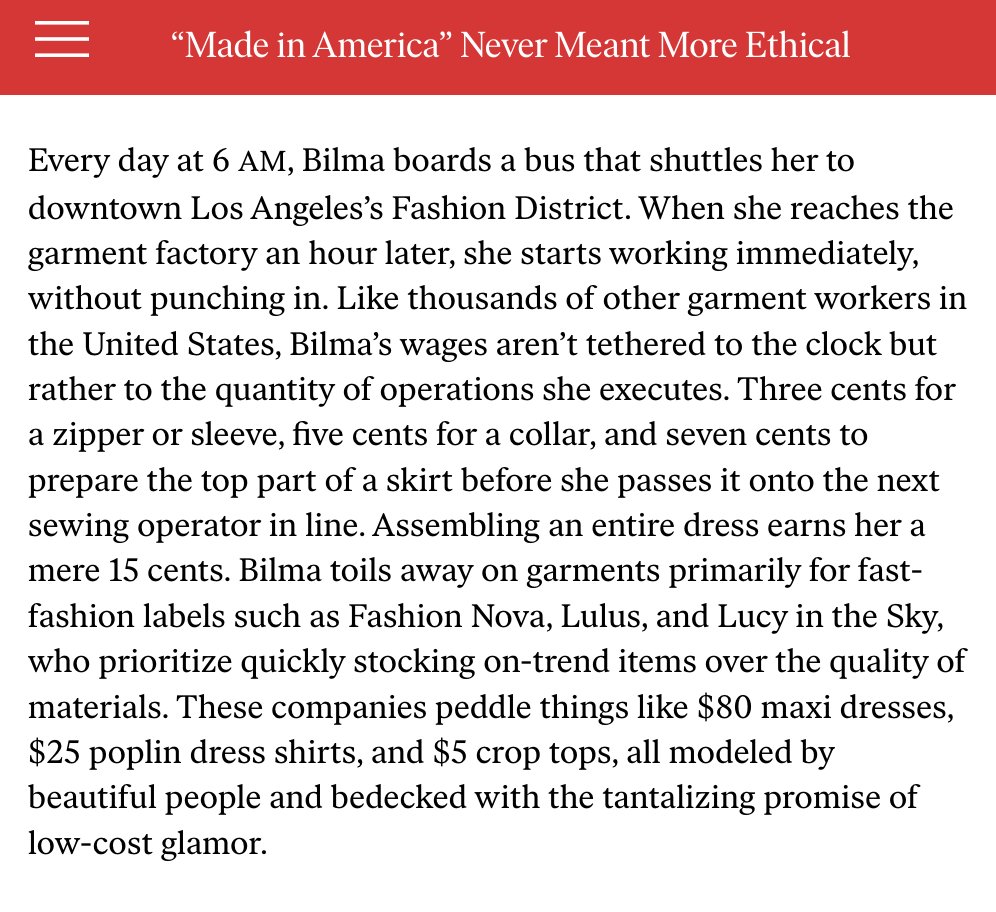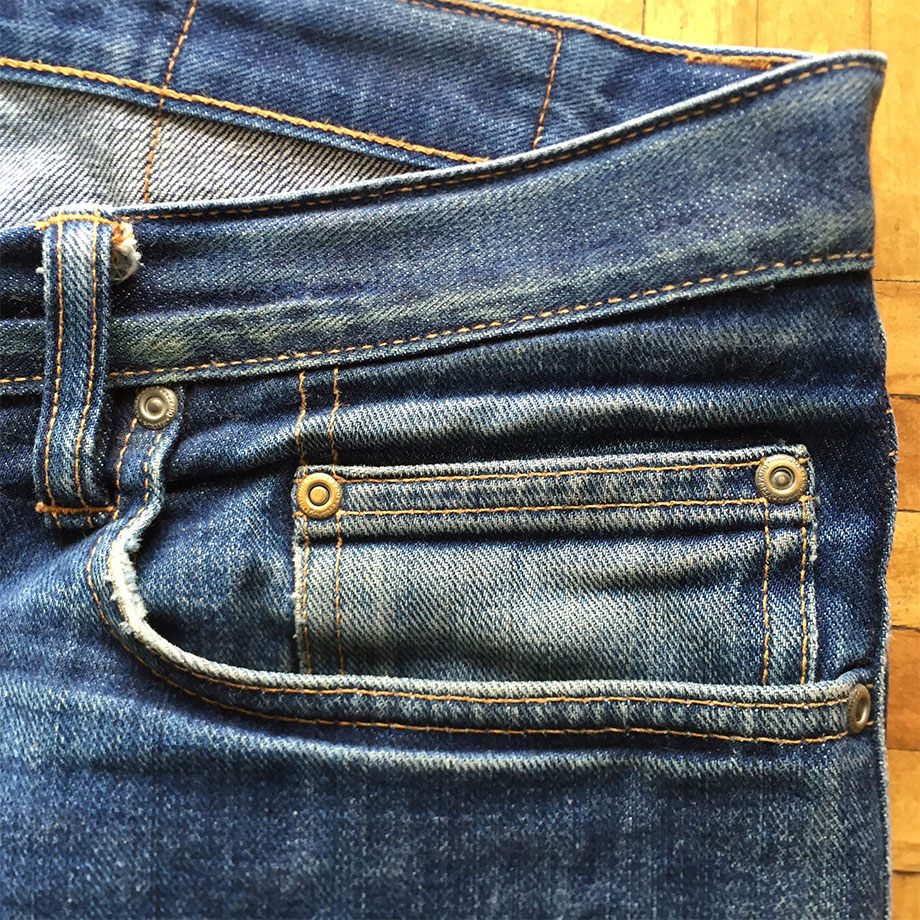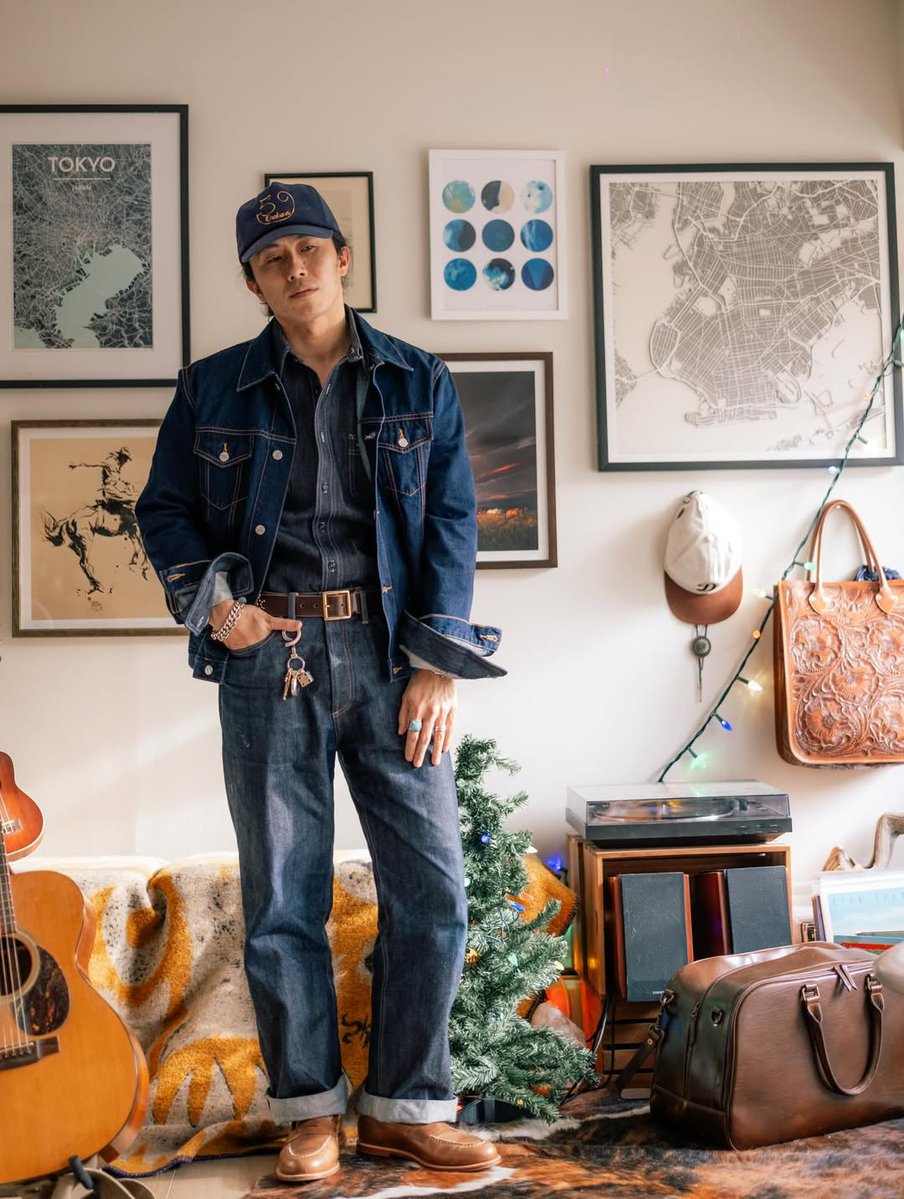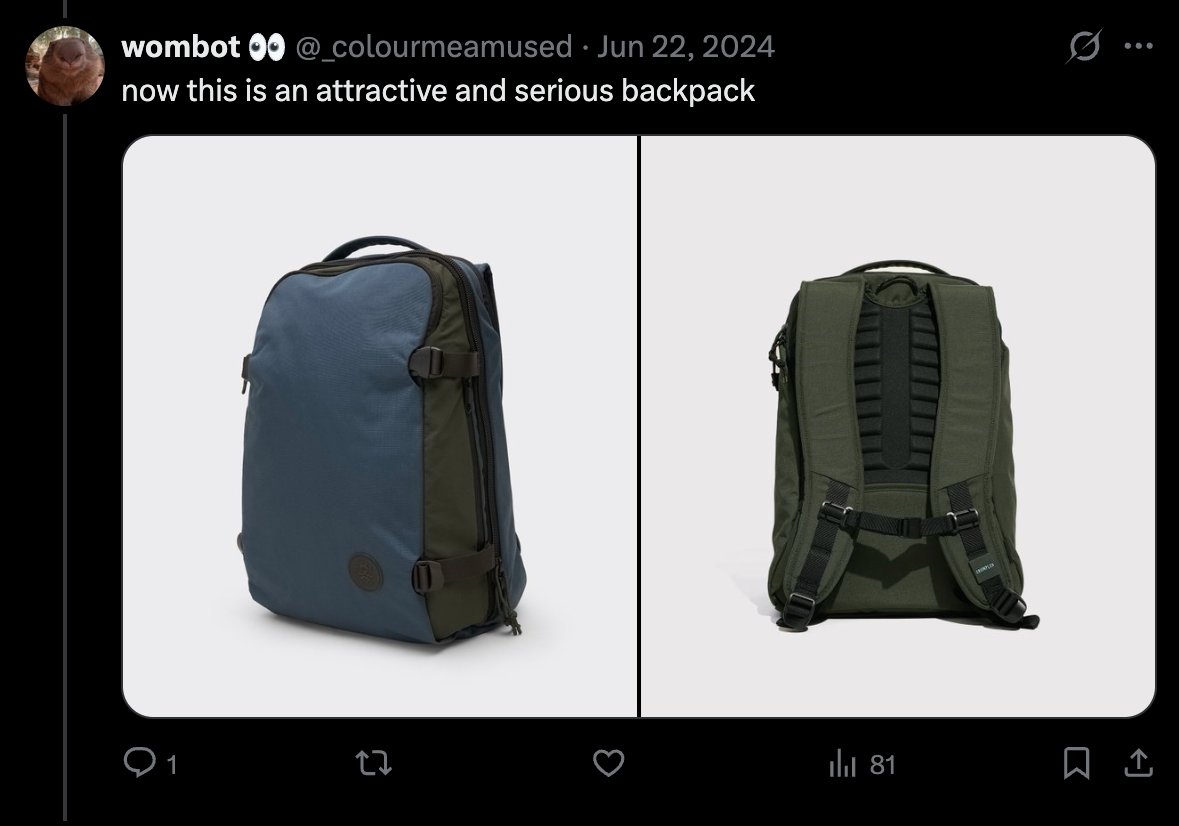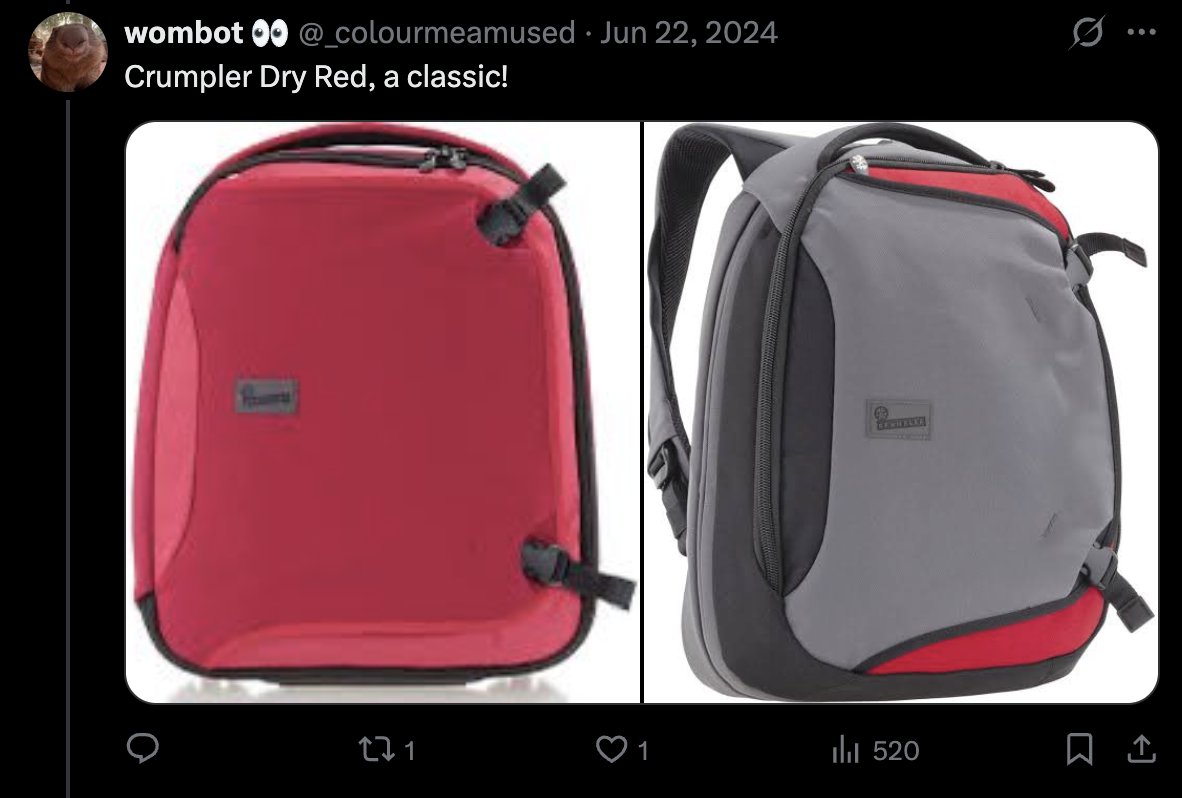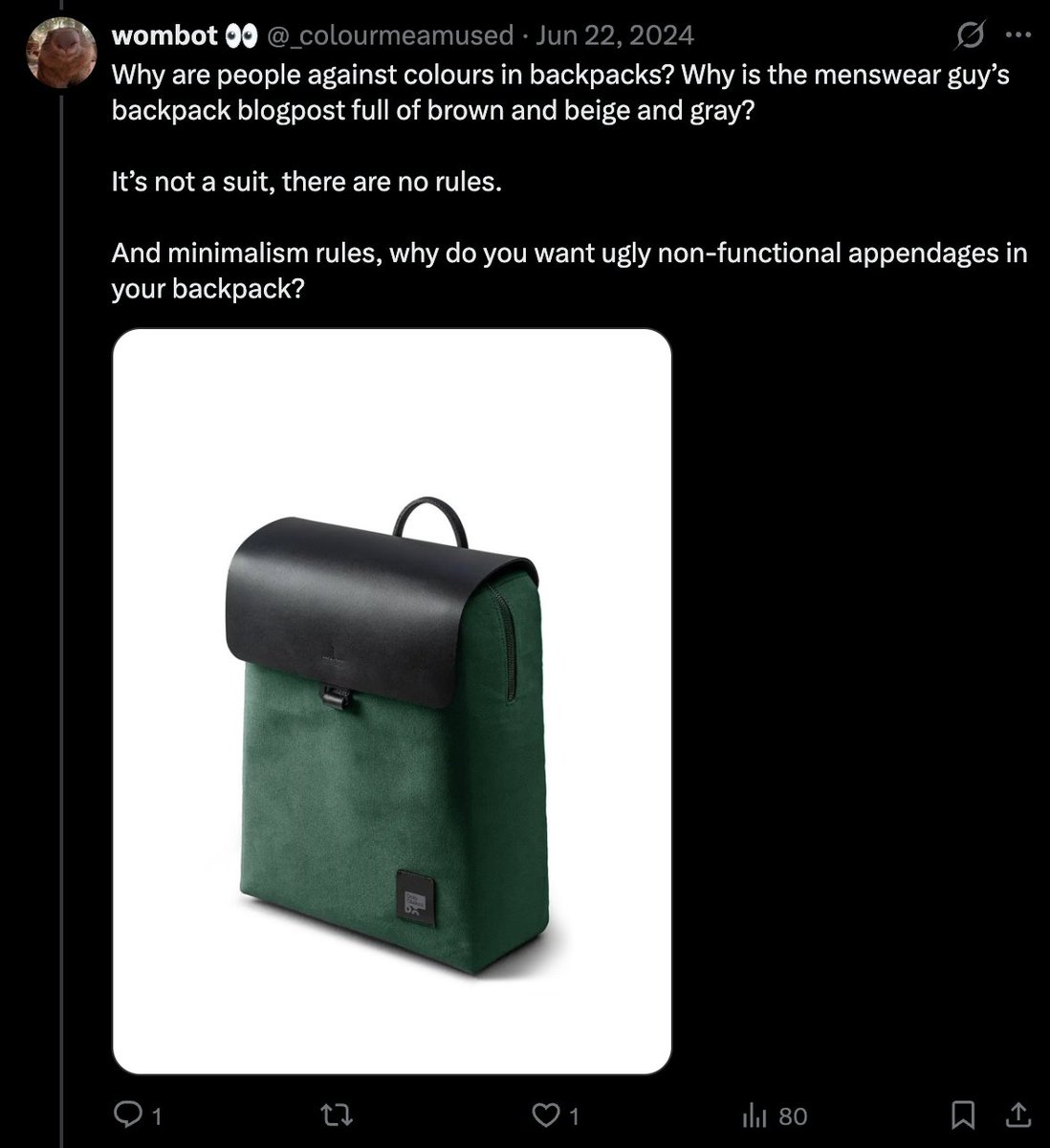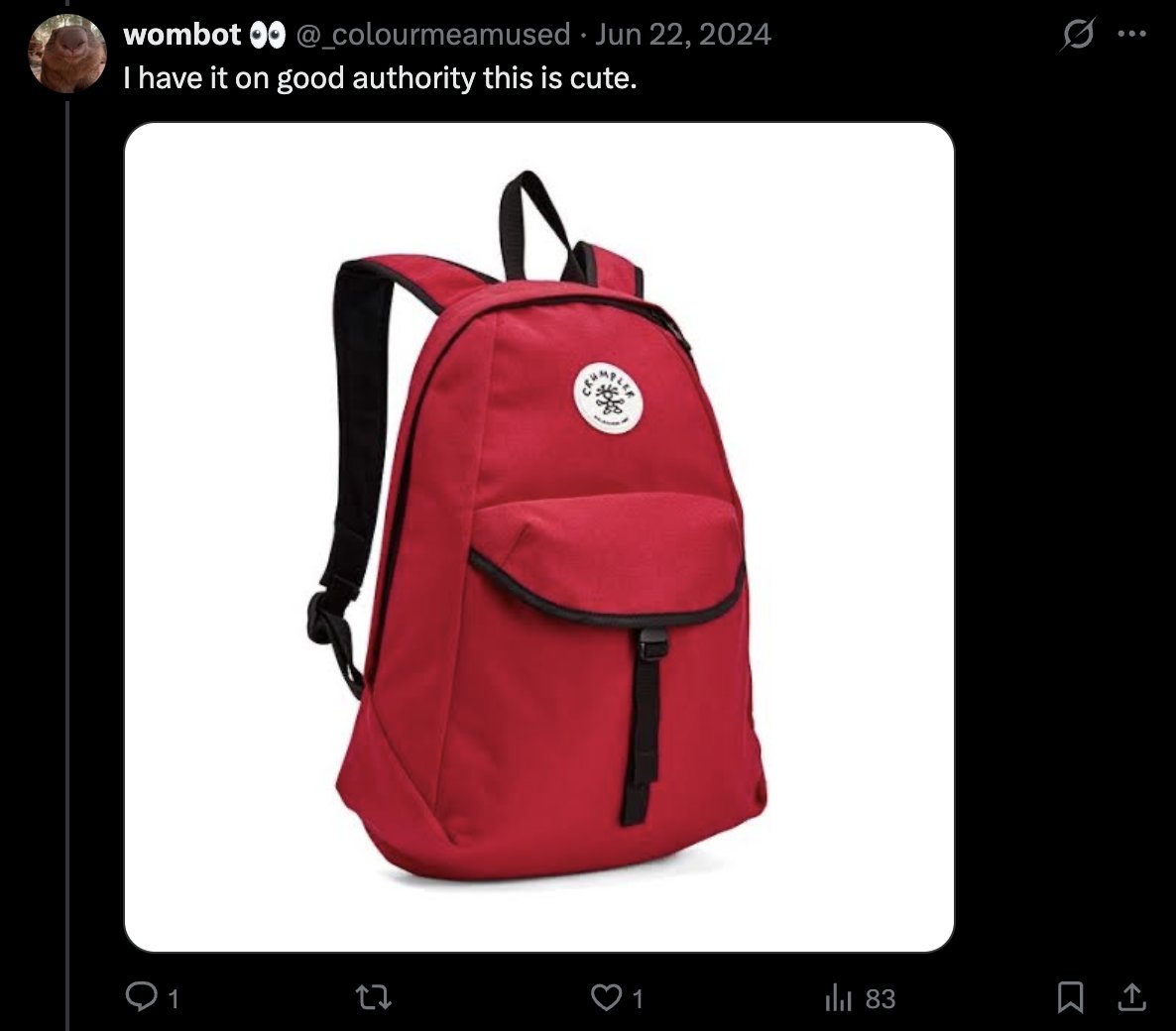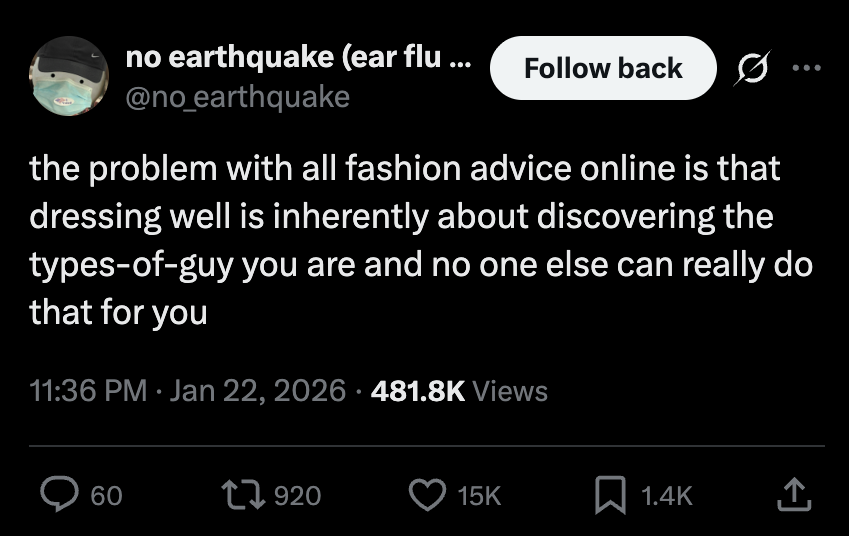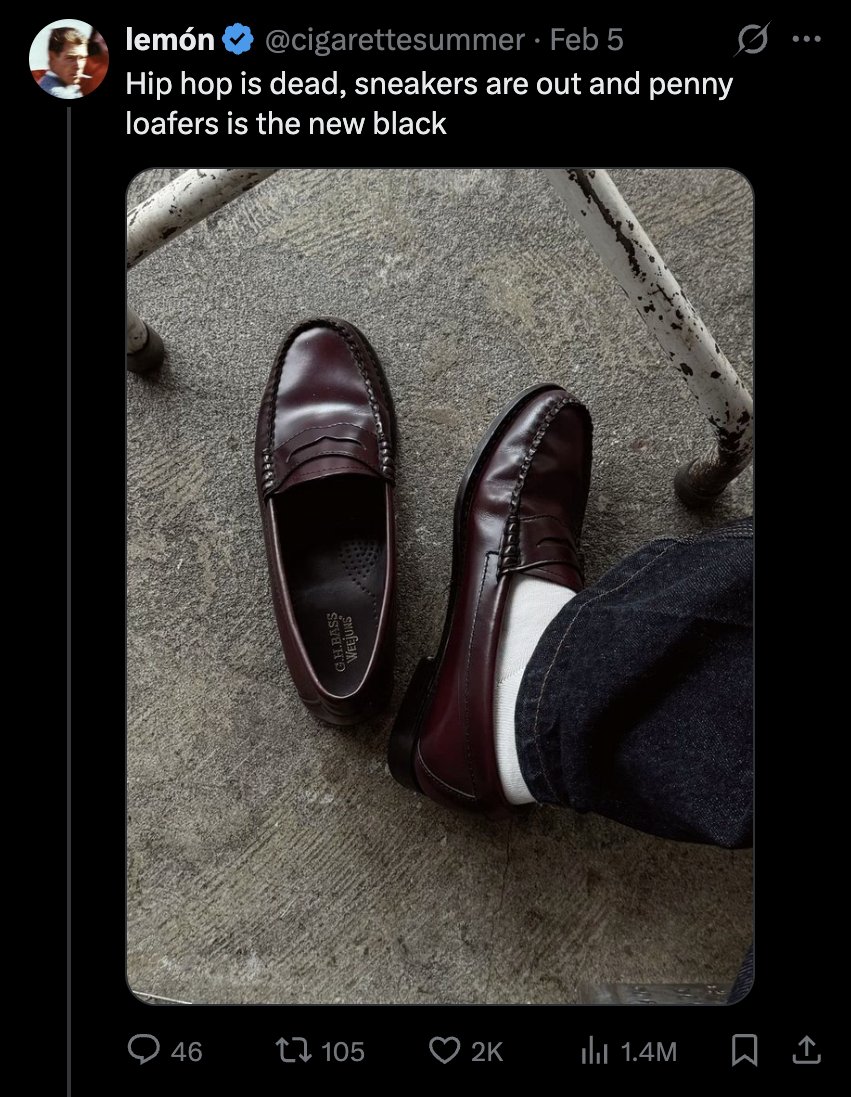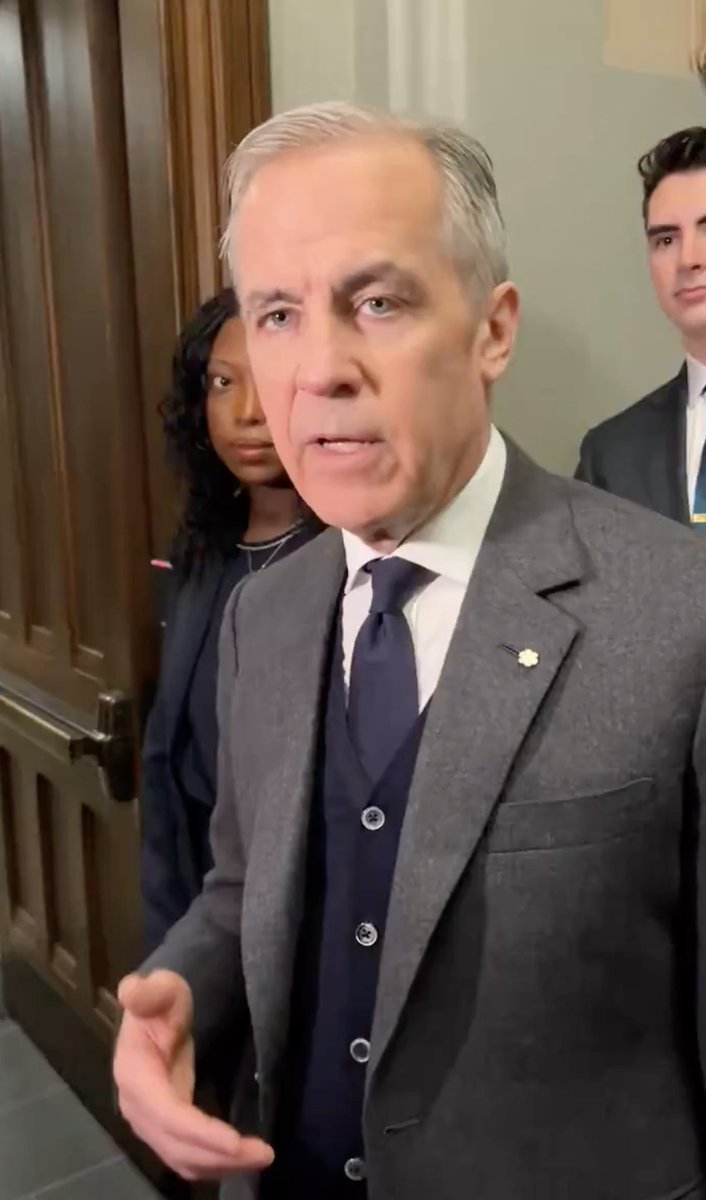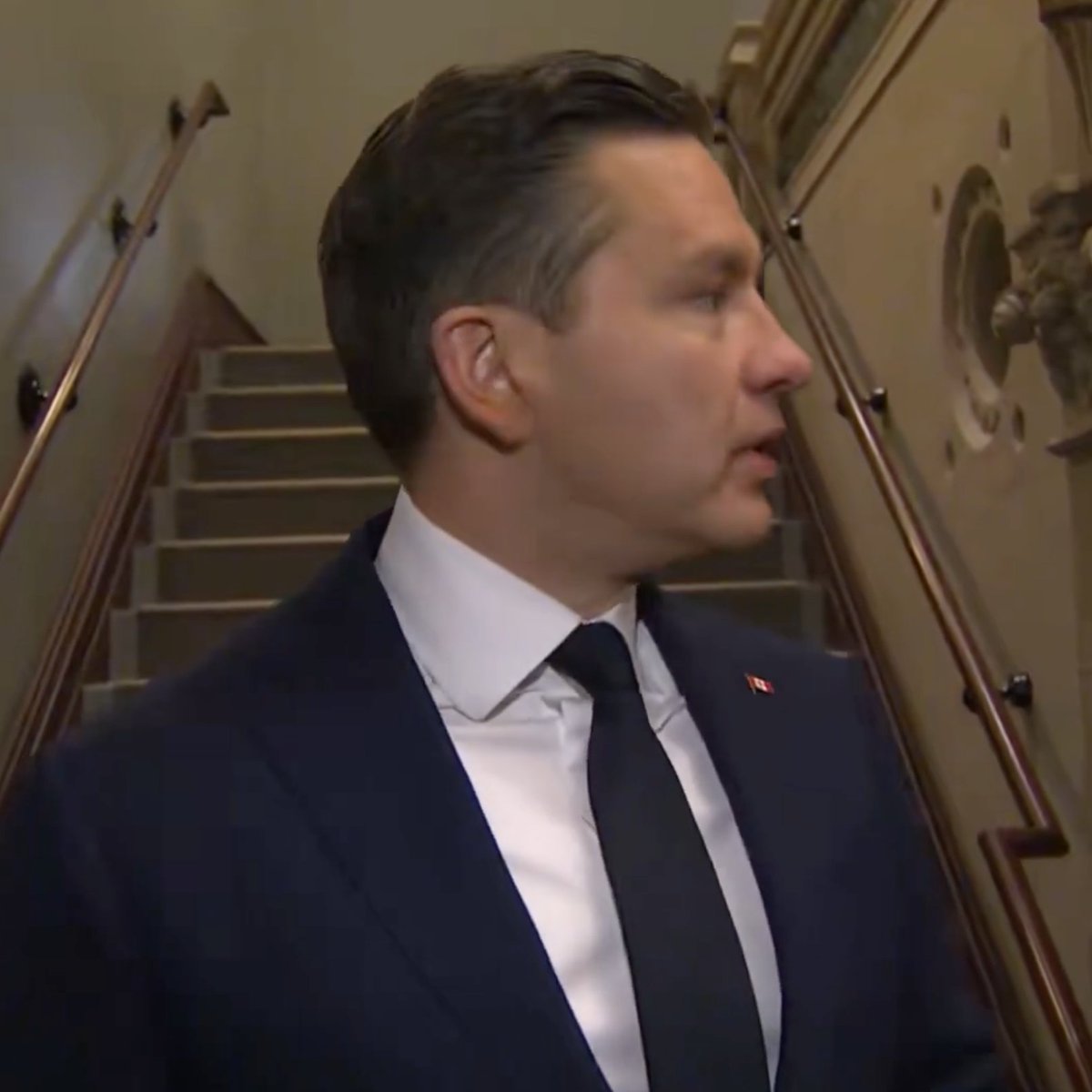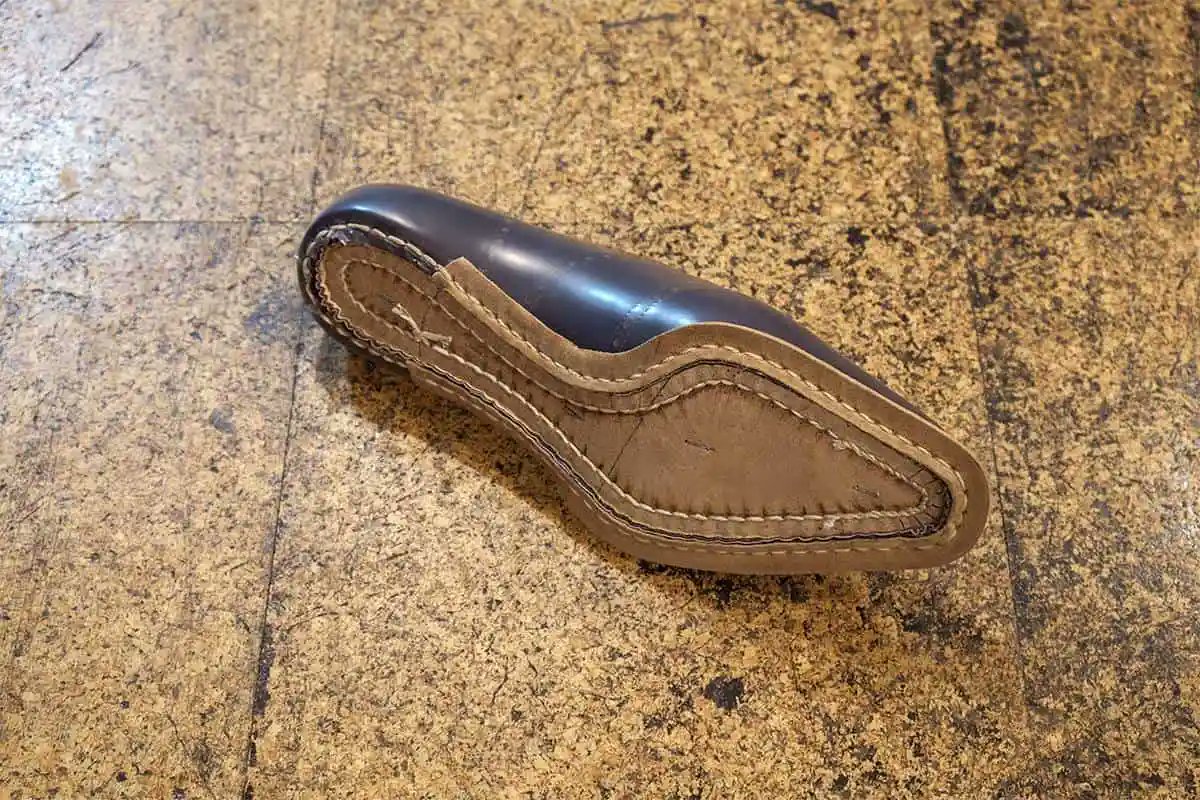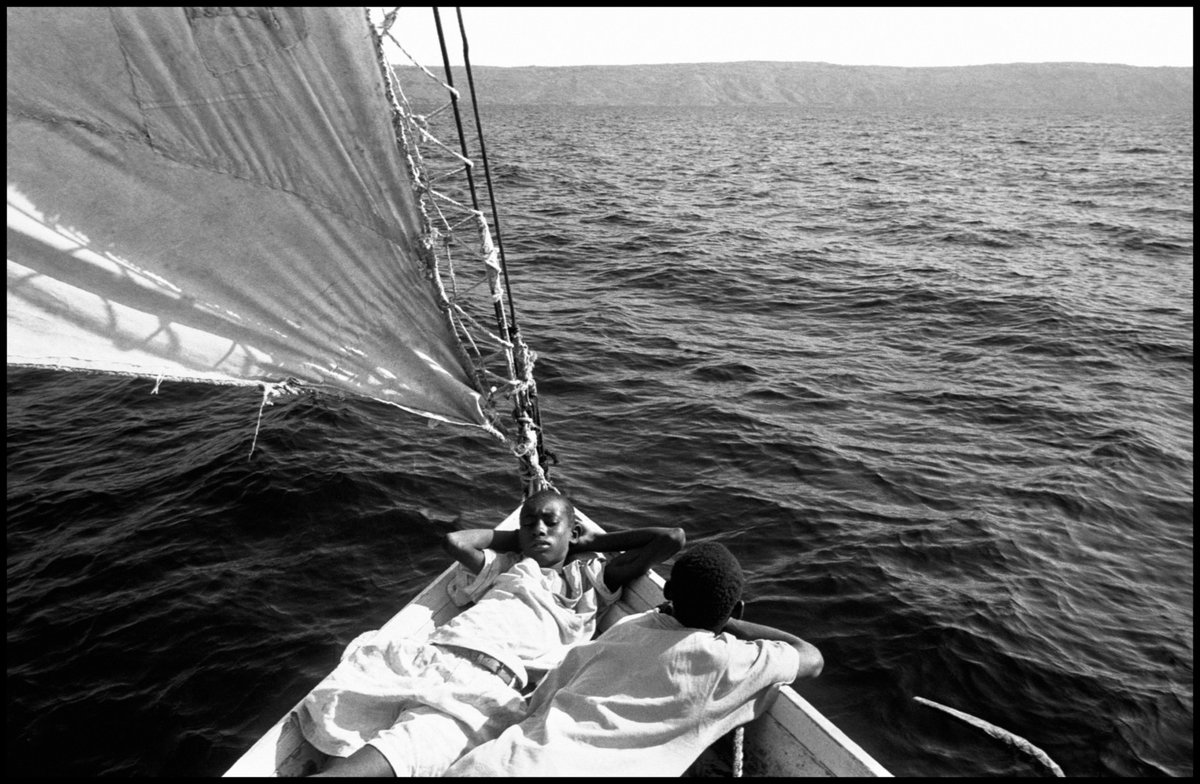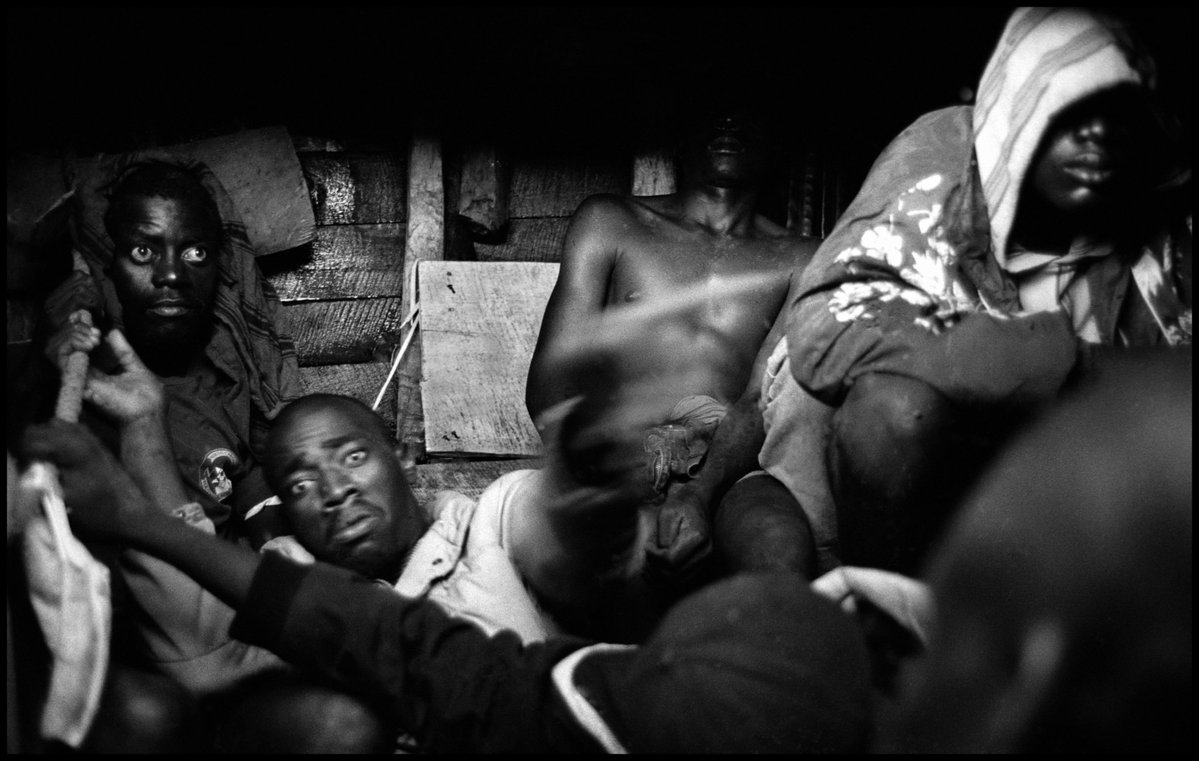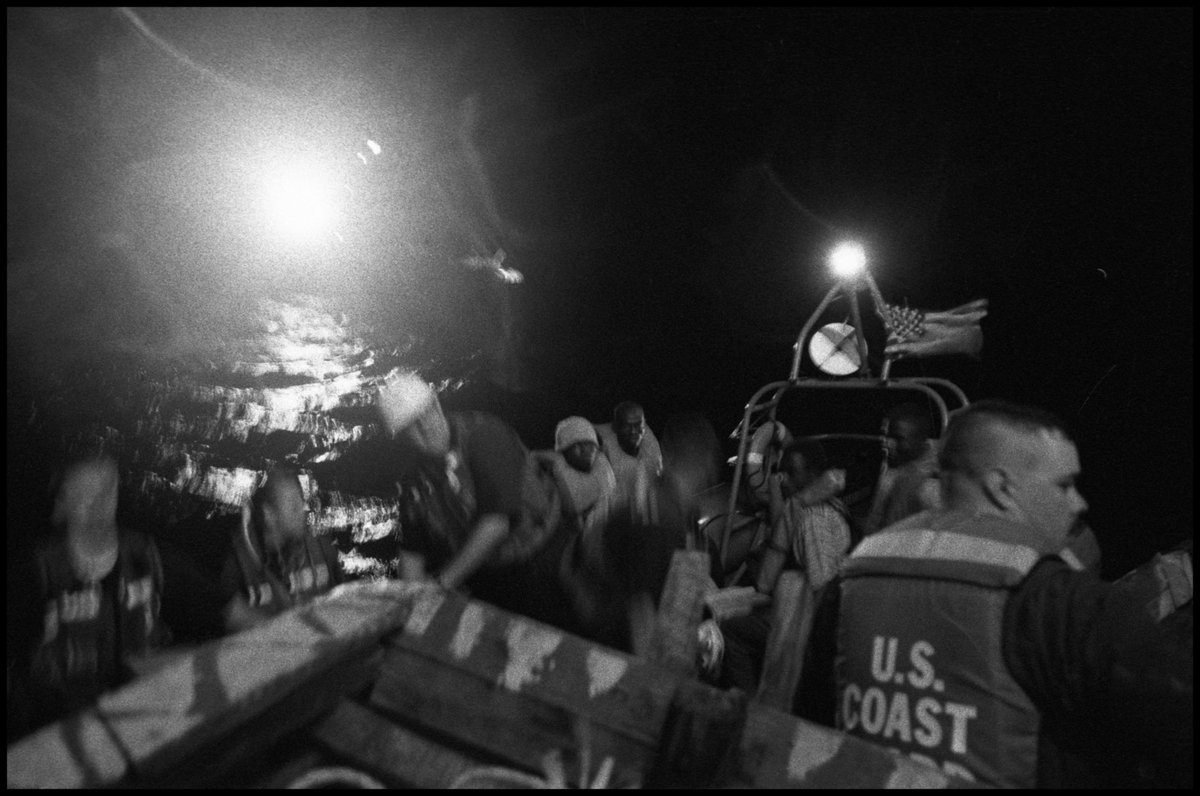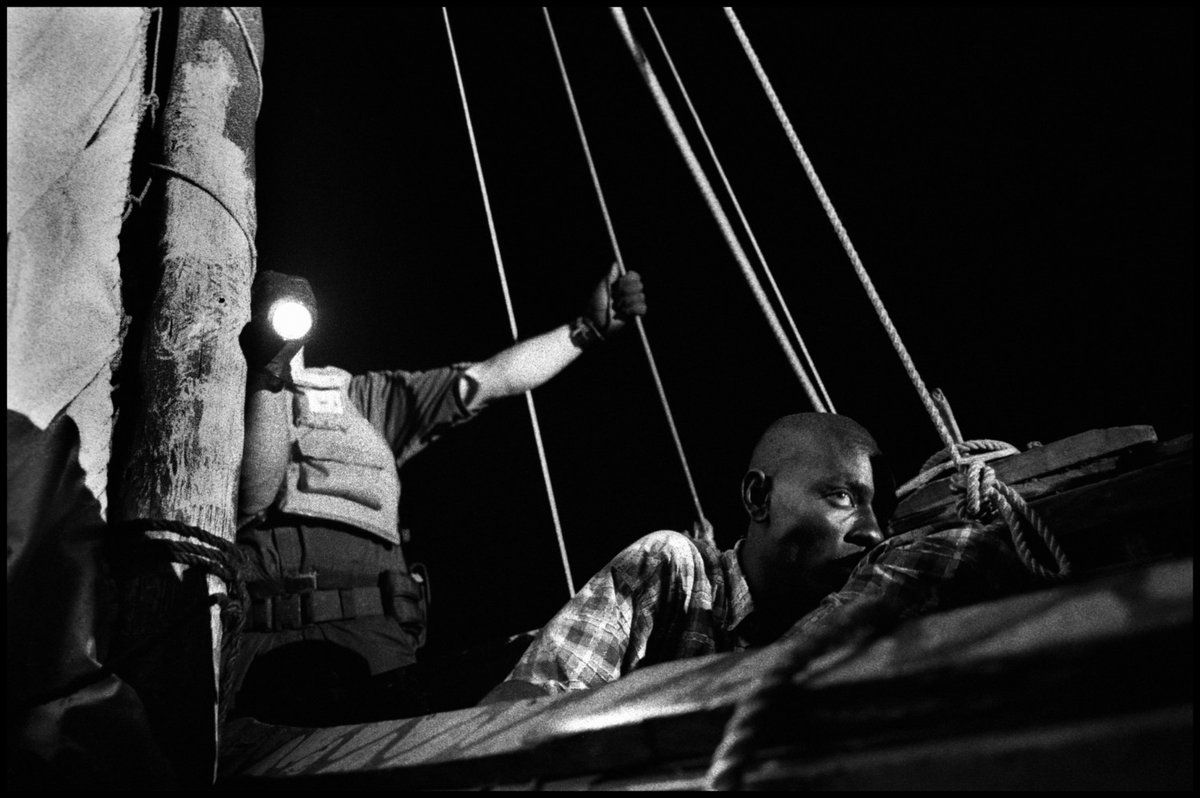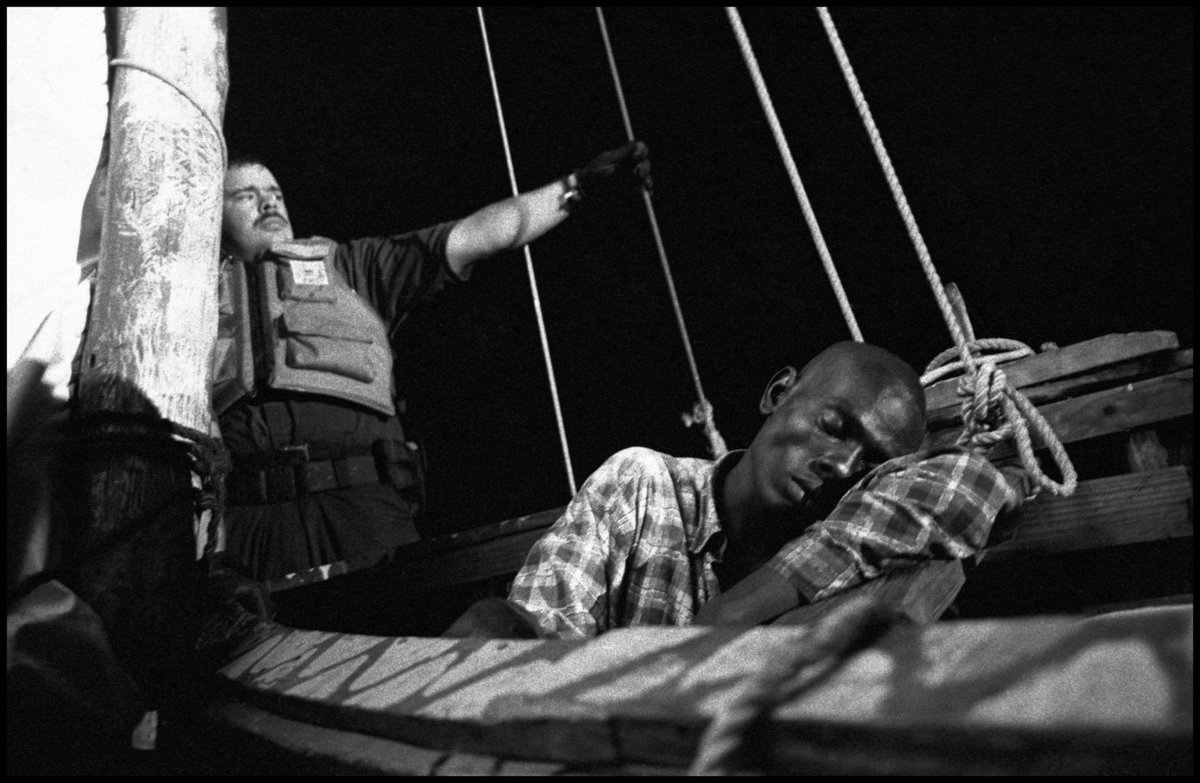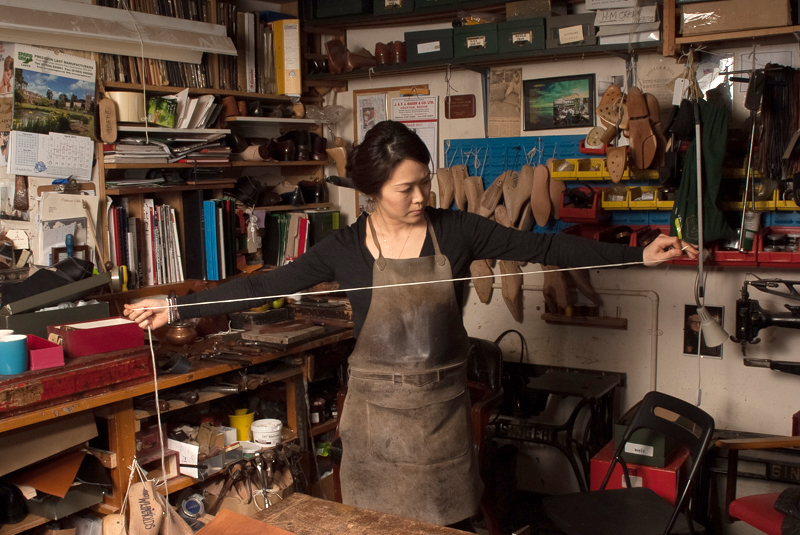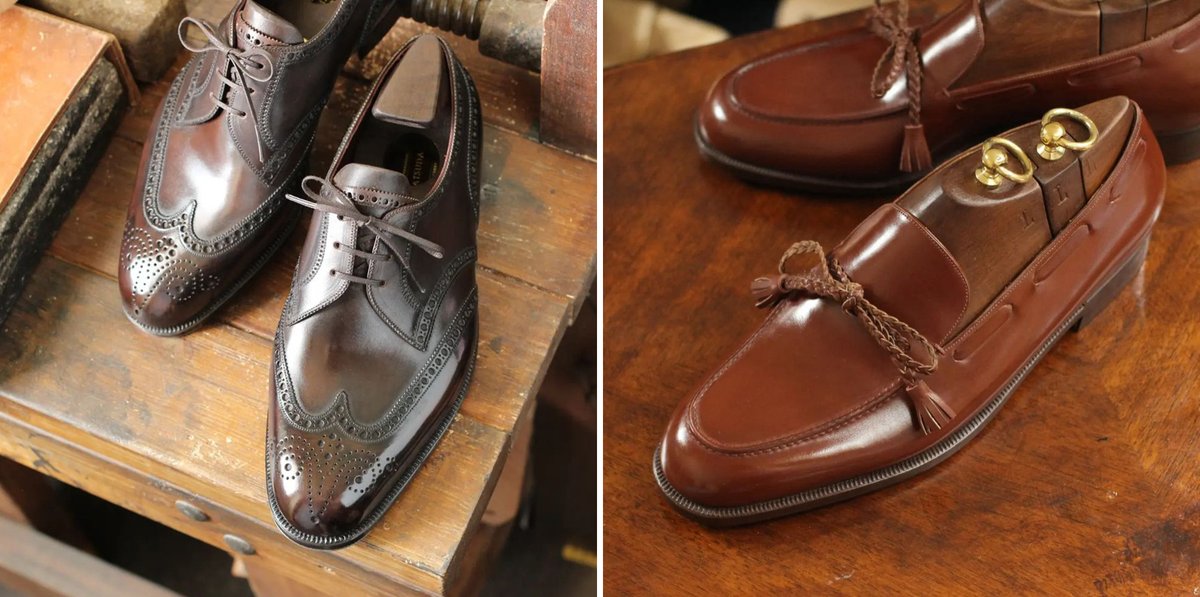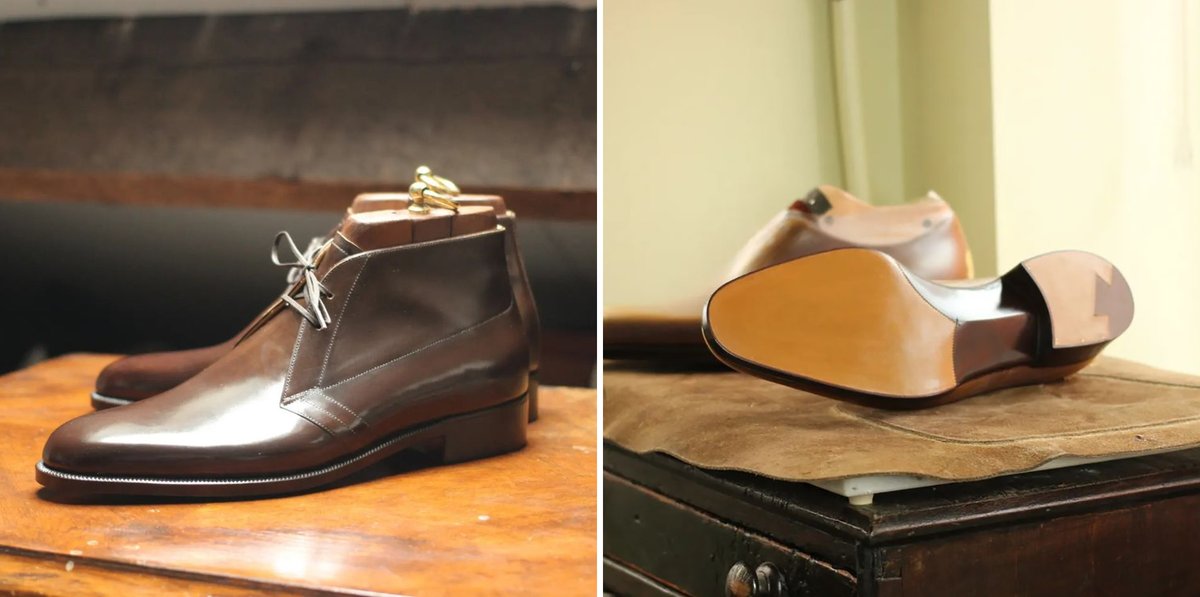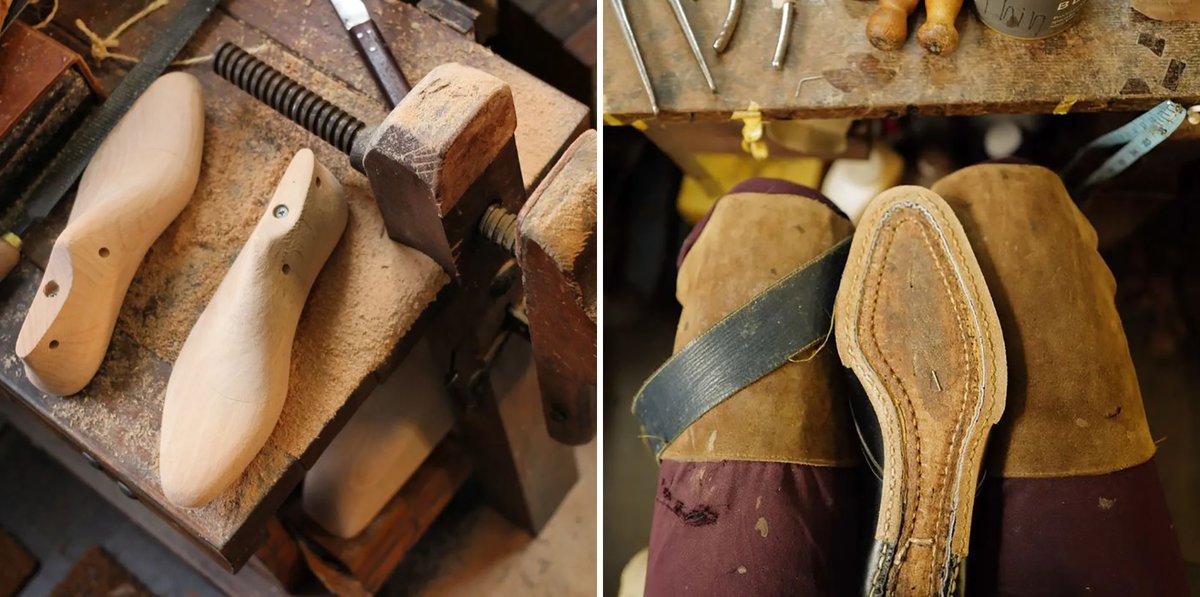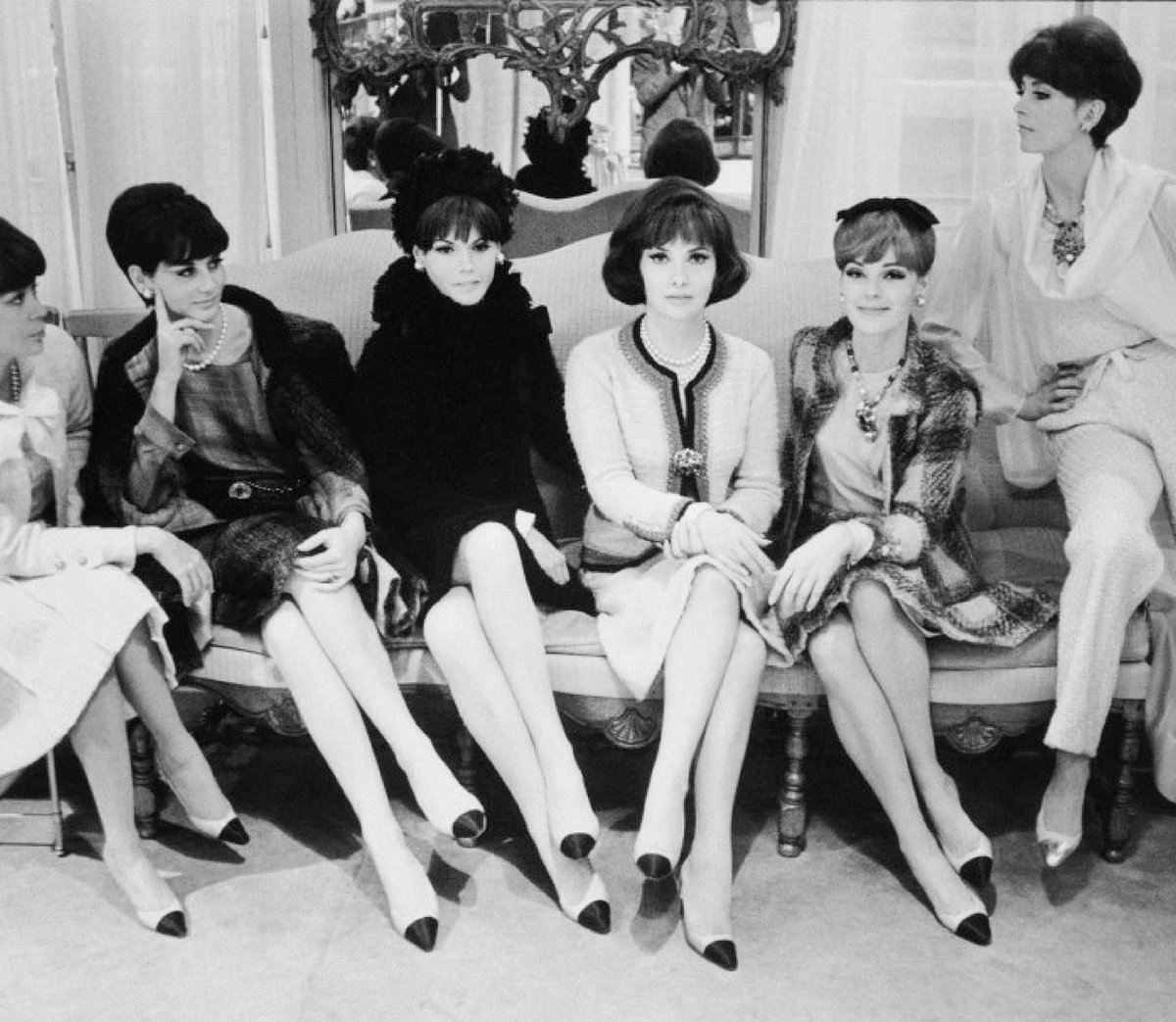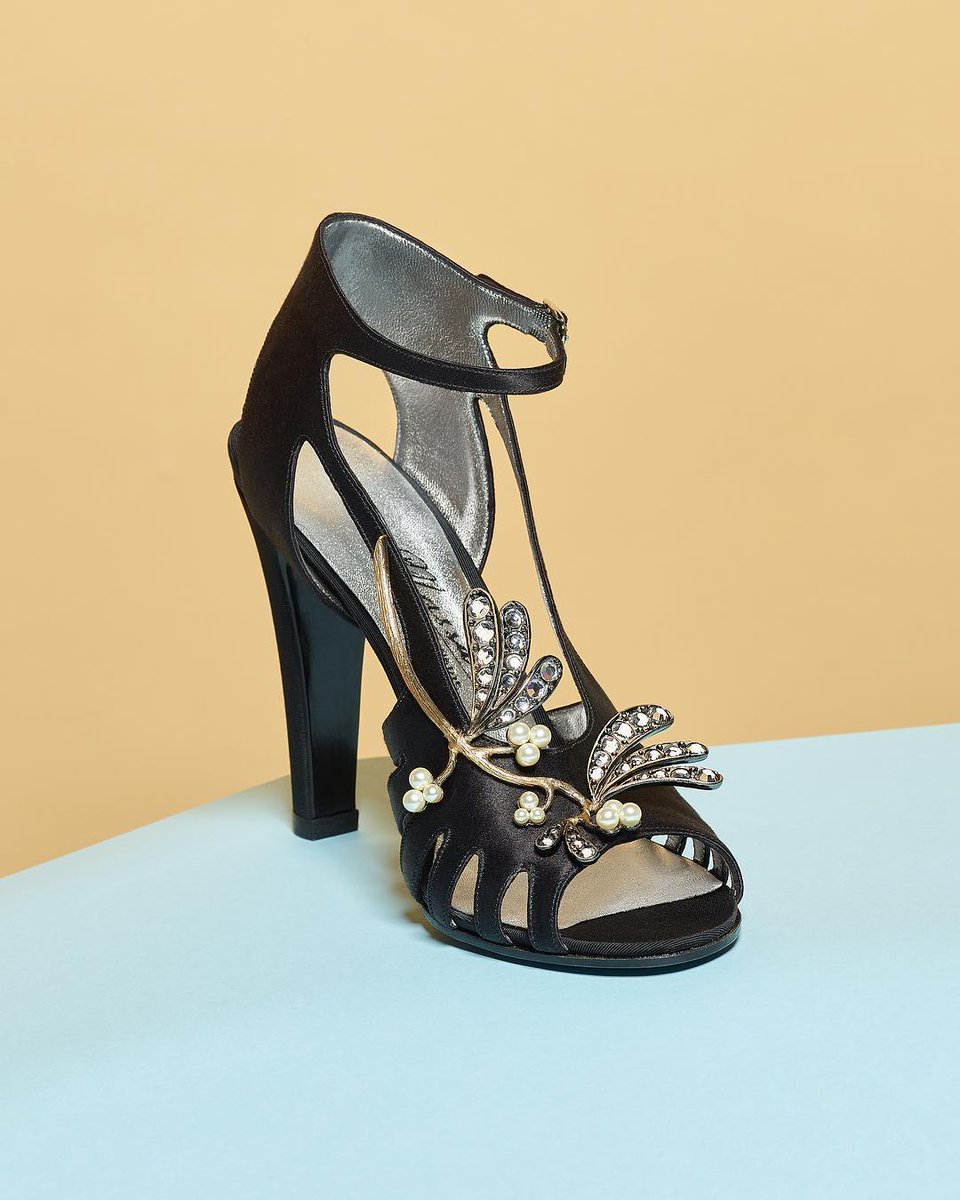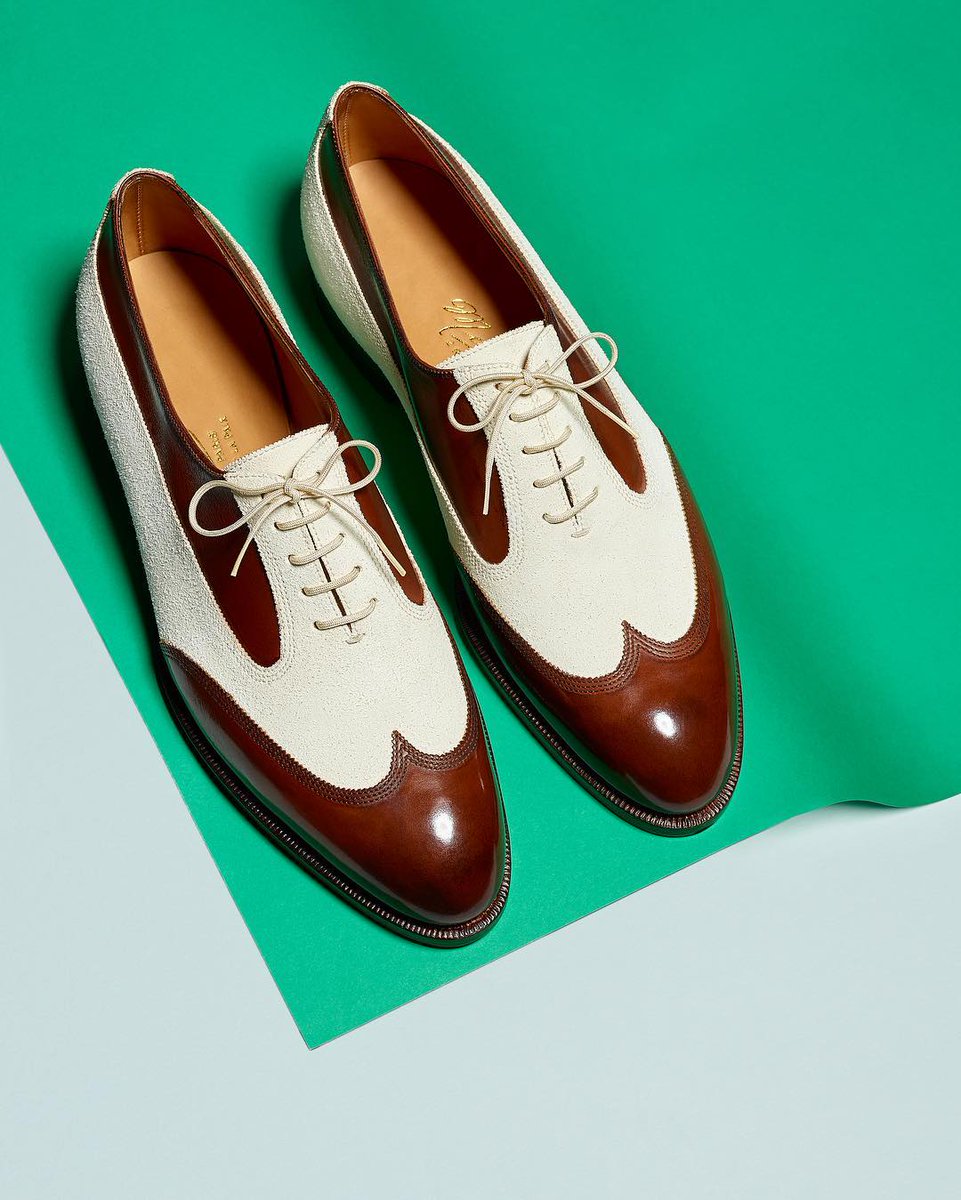🇨🇦 CANADIAN SHOPPING GUIDE 🇨🇦
Want to support Canadian companies? Here are some Canadian businesses that sell high quality menswear. Some also carry womenswear. 🧵
Want to support Canadian companies? Here are some Canadian businesses that sell high quality menswear. Some also carry womenswear. 🧵

First, some caveats. What does it mean to "buy Canadian?" Does it mean buying things made in Canada? Or just from Canadian stores, which may carry imported goods? Something made in Canada will be more expensive, so price is a consideration. You decide what level is right for you. 

Second, protectionism is bad bc it can hurt consumers. This is one of the probs with Trump's tariffs: consumers can end up paying *more* for *lower quality* goods. Just bc something is domestic doesn't mean it's quality.
As such, I'll focus on what I think are good companies.
As such, I'll focus on what I think are good companies.

Let's start with producers.
House of Blanks is the in-house label for Roopa Knitting Mills, an Ontario factory that has supplied the likes of Aime Leon Dore with quality sweats and t-shirts. Their sweats are hefty, but soft. Great value for price.
houseofblanks.com

House of Blanks is the in-house label for Roopa Knitting Mills, an Ontario factory that has supplied the likes of Aime Leon Dore with quality sweats and t-shirts. Their sweats are hefty, but soft. Great value for price.
houseofblanks.com

Similarly, A Care Label makes basics—t-shirts, hoodies, sweatshirts, and summer dresses—entirely in Montreal using 100% post-consumer recycled cotton. Silhouettes tend to be somewhat cropped and boxy, which is both forgiving and comfy.
acarelabel.com

acarelabel.com
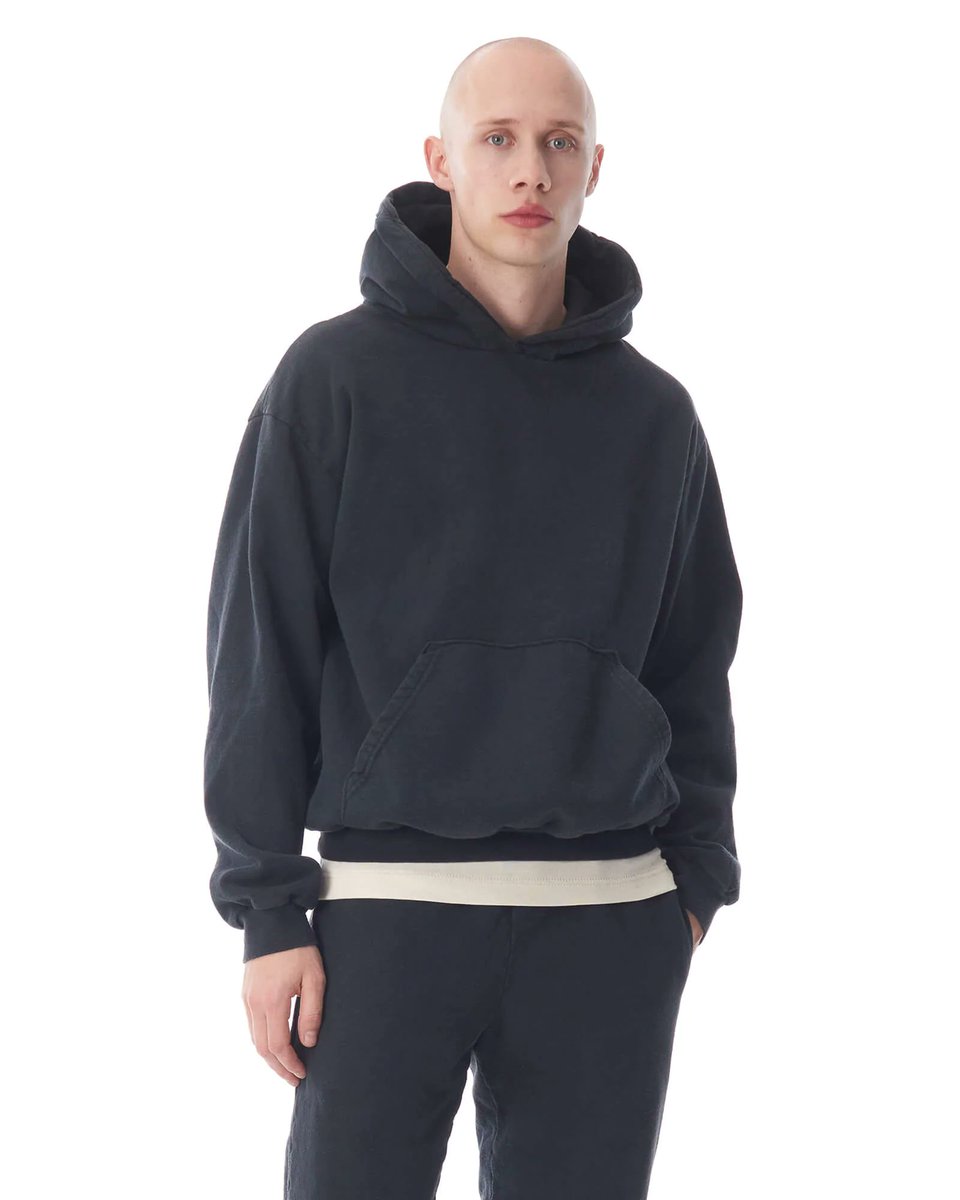

Want sweaters that are a little more refined? Milo & Dexter carries the fisherman styles you've probably admired in movies. However, their knits are made in Canada. They also carry stuff like stout rugbys, waterproof outerwear, and leather carryalls.
miloanddexter.com

miloanddexter.com


Forget Canada Goose. Kluane Mountaineering makes classic, down filled outerwear in the style of 1970s hikers (IMO the golden age of outdoor style). Since everything is custom, you have to go to their Edmonton store. They sell t-shirts online though.
kluanemountaineering.com

kluanemountaineering.com


Viberg is a heritage workboot manufacture that makes shoes for menswear nerds. They use Goodyear welting with a channeled insole, so you can replace the soles when they wear down (rather than binning the shoe). Follow their "archive sales" for discounts.
viberg.com

viberg.com


Dayton Boots recently rebranded as Wohlford. I'm recommending them with a bit of trepidation, as there have been complaints about declining quality control and service over the last 15 years. Still, handsome work boots without Viberg's prices.
wohlford.ca

wohlford.ca

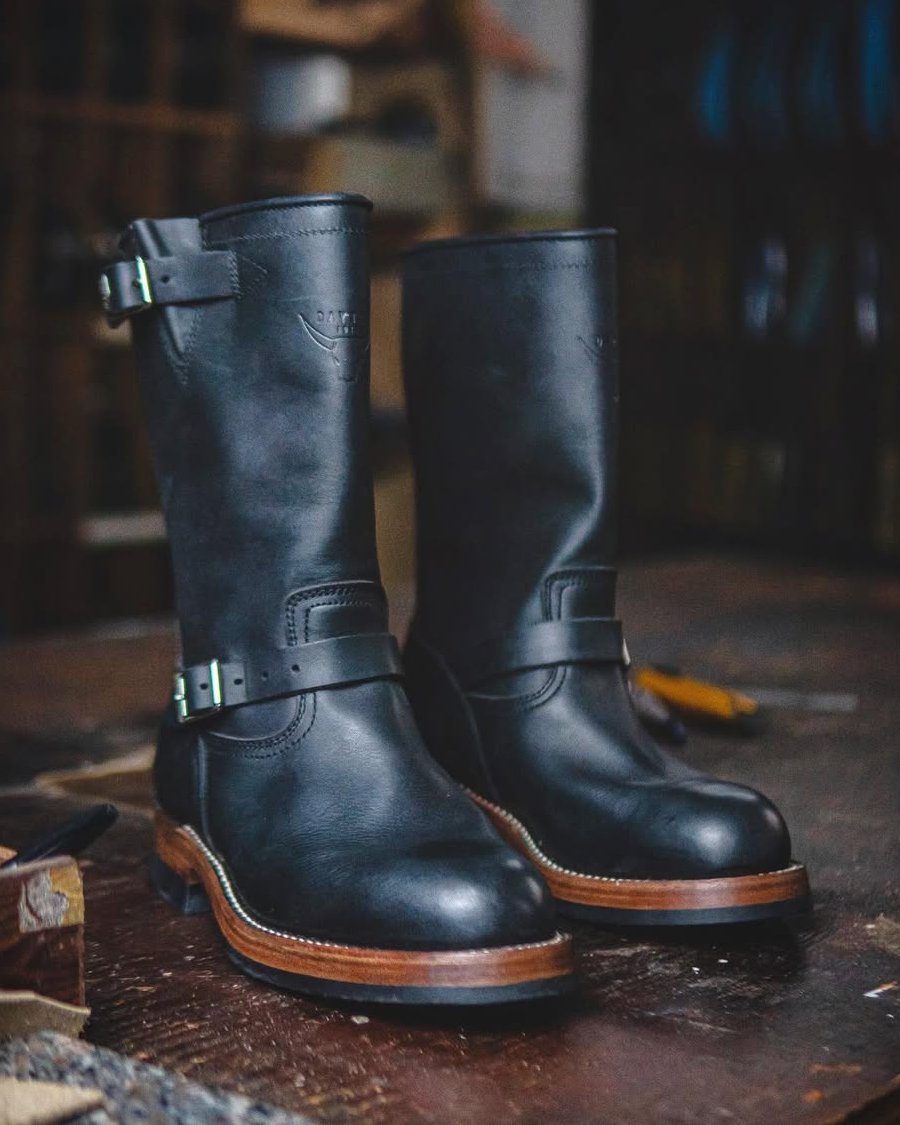
Naked & Famous makes some of the best jeans in Canada. Their focus is on raw, selvedge Japanese denim, which feels stiff at first, but breaks in beautifully and allows you to fade the material naturally over time. Wide range of fits and some fun fabrics.
nakedandfamousdenim.com

nakedandfamousdenim.com


Henry's is producing interesting workwear styles in Toronto. Since these are small batch runs, owner and maker Keith Henry can take greater liberty with design. For instance, check out these cool pockets! Stuff sells out fast, so follow them for updates
wearhenrys.com

wearhenrys.com


Samuelsohn is the label-behind-the-label. They produce ready-to-wear and made-to-measure tailoring for some of the best suit shops in North America. Soft tailoring with full canvas construction. Made in Canada using European materials.
samuelsohn.com/factorydirect

samuelsohn.com/factorydirect

If you loved the simple, sleek basics from wings + horn (unfortunately no longer operating), check out Body of Work. They do contemporary styled basics that are designed, cut, and sewn in Canada. Not too out there, just easy to wear.
bodyofwork-studio.com

bodyofwork-studio.com


People on menswear forums went NUTS for Dana Lee's clothing from 2007 to 2012. She took a hiatus from the fashion industry, but is now back better than before. Basic styles, but great details and unique, sustainable materials. Read "Farms & Fiber" section
danaleebrown.com

danaleebrown.com


There's a certain kind of menswear guy who will talk your ear off about tea core leather and Shinki hides. Those guys are wild about Himel Brother's leather jackets because they're among the best in the world. Heavy duty, hardcore, and often repro styles.
himelbros.com

himelbros.com


Rosa Rugosa is a workwear line from Matty Matheson and Ray Natale. I think Matheson is one of the most stylish men right now, so you know the line is good. Plus, four-pocket field jackets made in Canada for just $195. Impressive value.
rosarugosa.ca

rosarugosa.ca

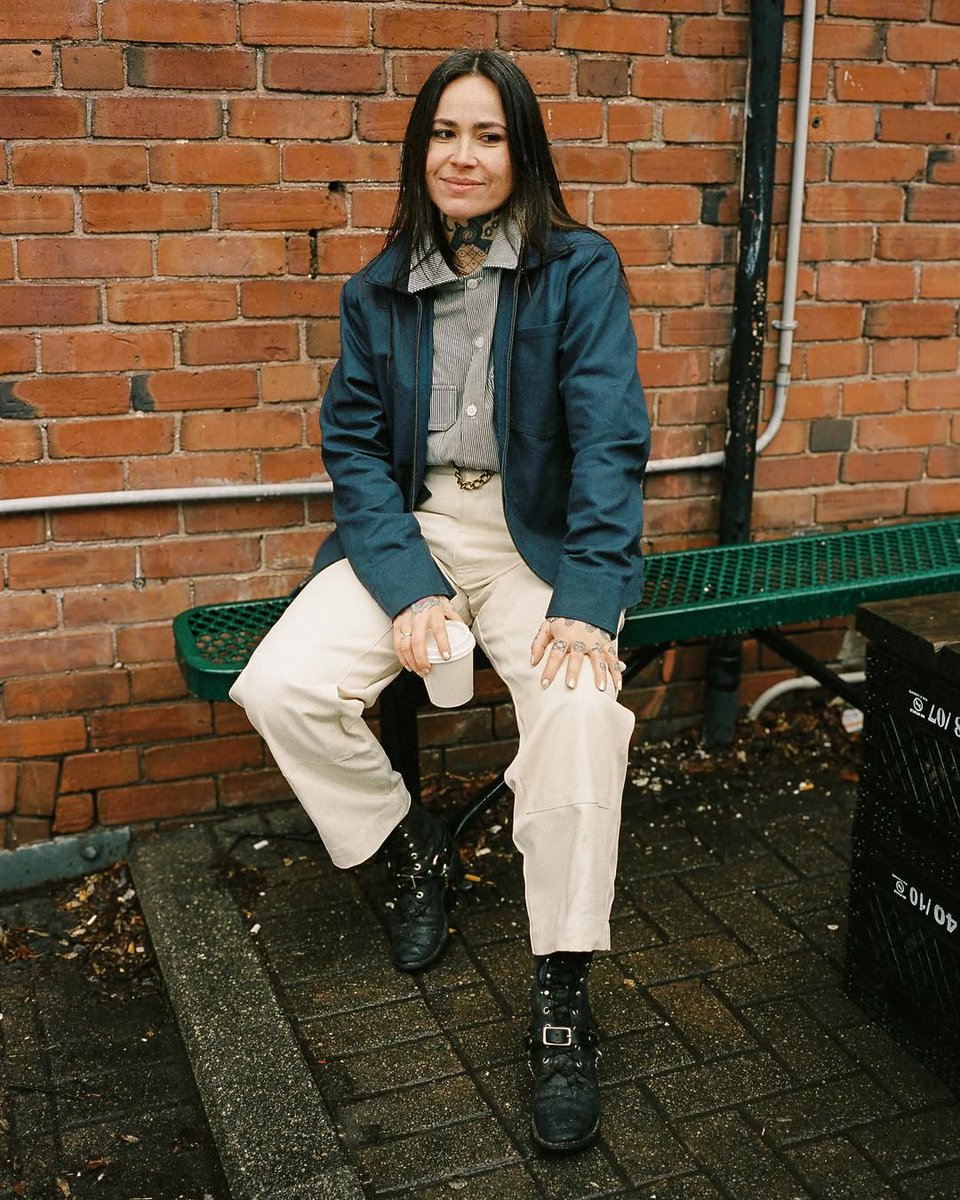
This one is controversial, as not all Coast Salish people consider themselves Canadian. Still, I would be remiss to not mention these beautiful hand-knit sweaters bc they're on my wish list. Made in British Columbia by indigenous knitters. I want one!
knitwithpurpose.com

knitwithpurpose.com


Let's move onto Canadian companies that work with overseas factories
If you've admired what I post, but find prices expensive, check Spier & Mackay. They specialize in well-made, classic clothing at relatively affordable prices. Tailoring and casualwear
spierandmackay.com

If you've admired what I post, but find prices expensive, check Spier & Mackay. They specialize in well-made, classic clothing at relatively affordable prices. Tailoring and casualwear
spierandmackay.com


Sleek, contemporary tailoring from Wynona. I wish I hadn't mentioned this shirt (pic 1) a few months ago bc it quickly sold out and now I want one. Great eye for fabrics, making classic feel fresh. They also offer custom tailoring at their Toronto store.
wynonastudio.com

wynonastudio.com


If you've ever admired the outfits in Japanese fashion publications such as Popeye, check out Estudio Niksen. This Canadian brand works with South Korean factories to produce streetwear styles in wide fitting silhouettes. They also carry house goods.
estudioniksen.com

estudioniksen.com


Finally, let's move onto stores. There are so many to name:
— Haven: Incredible techwear and streetwear.
— Neighbour: Sophisticated clothing for ppl who look like they collect rare architecture magazines.
— Blue Button Shop: Fun Japanese goods. A fav. I wish this was near me! 😩

— Haven: Incredible techwear and streetwear.
— Neighbour: Sophisticated clothing for ppl who look like they collect rare architecture magazines.
— Blue Button Shop: Fun Japanese goods. A fav. I wish this was near me! 😩


— SSENSE: One of the biggest high-end fashion retailers. Every cool fashion dude shops here.
— Uncle Otis: For young guys who like heritage style. They carry Barbour, Monitaly, Orslow, and the like
— Tate + Yoko: For people who bleed indigo. One of Canada's best denim shops.

— Uncle Otis: For young guys who like heritage style. They carry Barbour, Monitaly, Orslow, and the like
— Tate + Yoko: For people who bleed indigo. One of Canada's best denim shops.

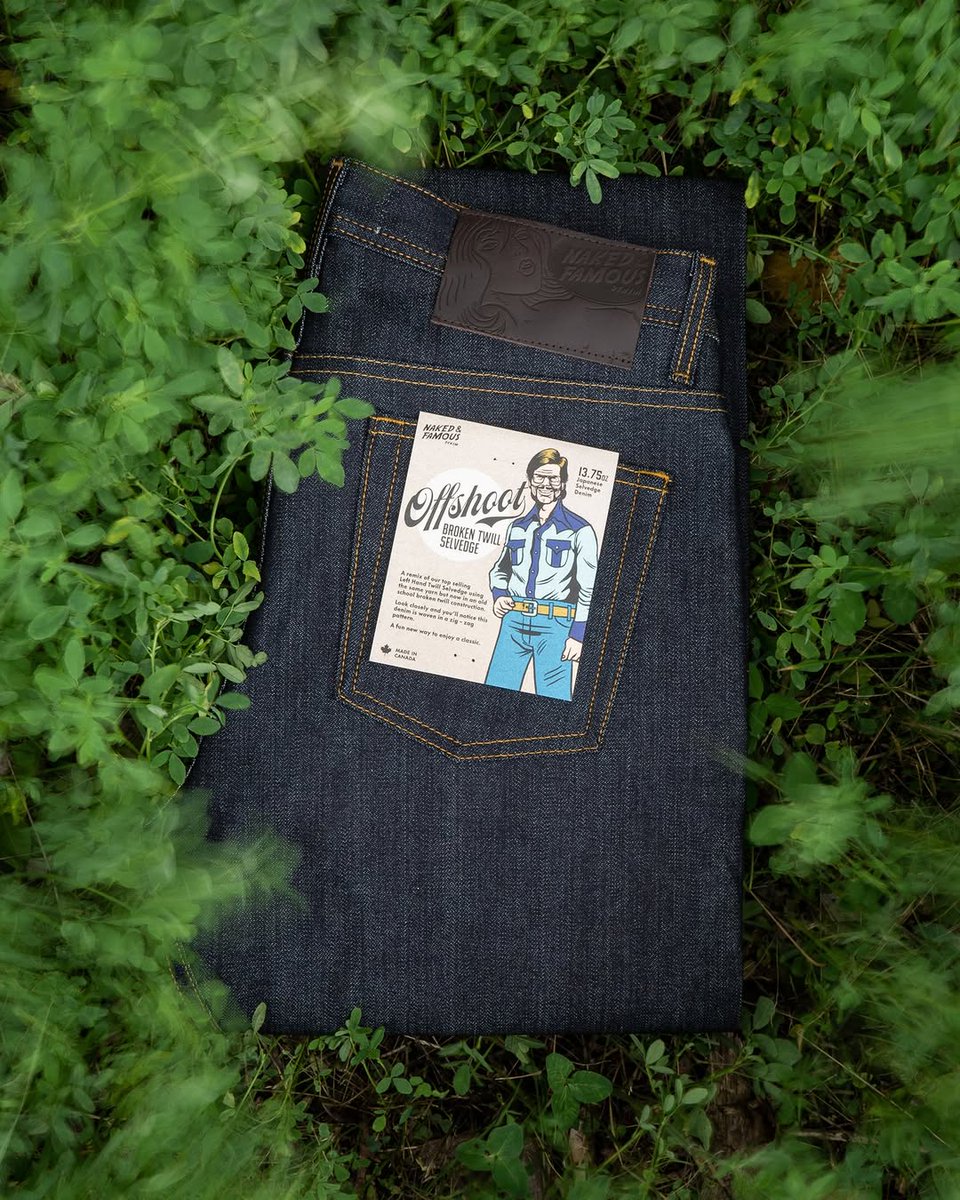
— Lost & Found: A great boutique that carries a bit of everything. Margaret Howell, Engineered Garments, and hard-to-find labels like Man-tle. Honestly top notch.
— Gravity Pope: A little more contemporary in vision, but with heritage brands.
— Dutil: Another great denim shop.
— Gravity Pope: A little more contemporary in vision, but with heritage brands.
— Dutil: Another great denim shop.

— Roden Gray: High fashion store for people who say things like Central Saint Martins. They carry CdG, Kiko Kostadinov, and Issey Miyake.
— Wallace Mercantile: Heritage-inspired brands like Blurhms, Kaptain Sunshine, and Frizmworks.
— Miloh: Another great denim and workwear shop.

— Wallace Mercantile: Heritage-inspired brands like Blurhms, Kaptain Sunshine, and Frizmworks.
— Miloh: Another great denim and workwear shop.


There are simply too many good Canadian companies to name. Some may not even know that popular names such as Dime and JJJJound are Canadian. I've run out of room, but hopefully the above gets you started. Follow companies on Instagram & support small businesses when possible. 🇨🇦 

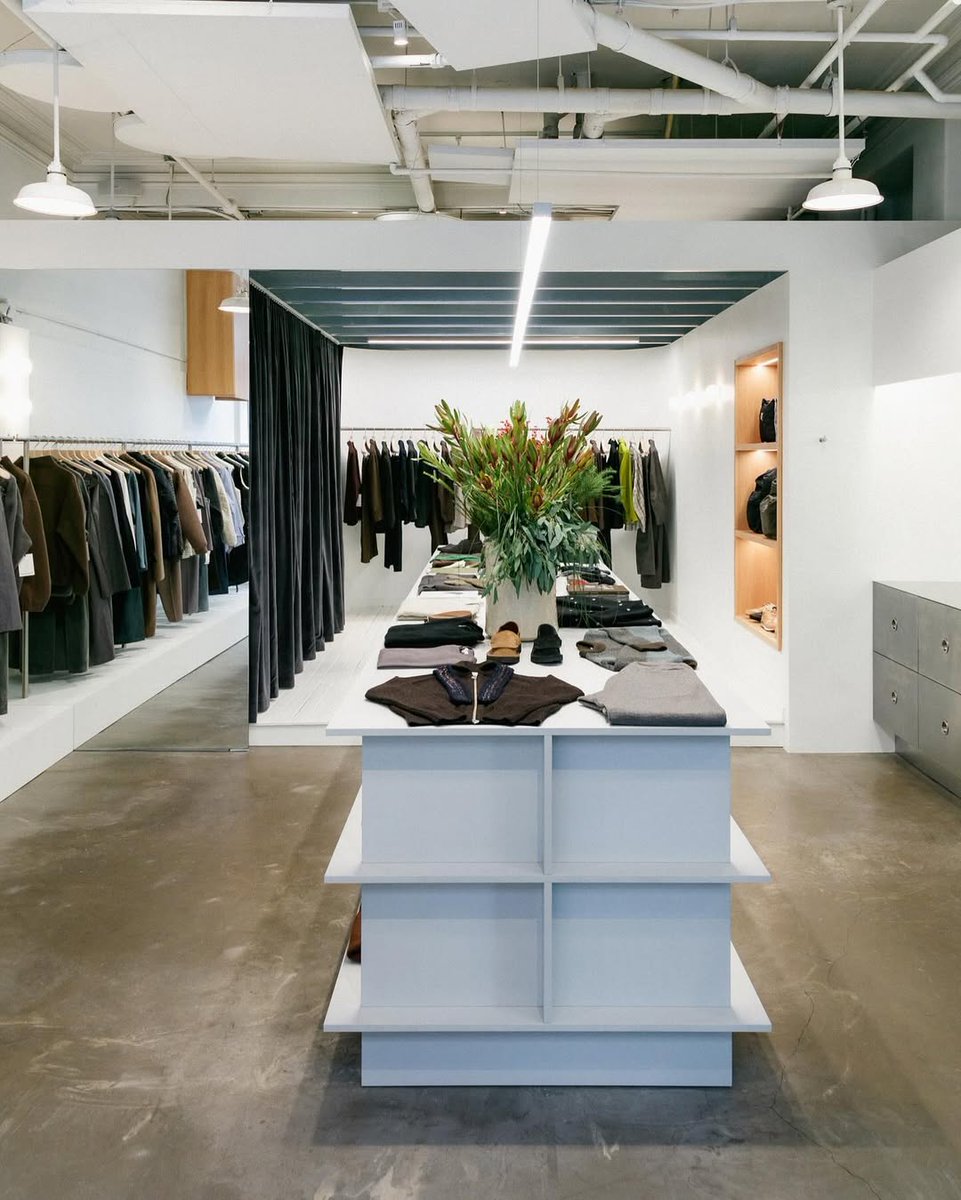

• • •
Missing some Tweet in this thread? You can try to
force a refresh



